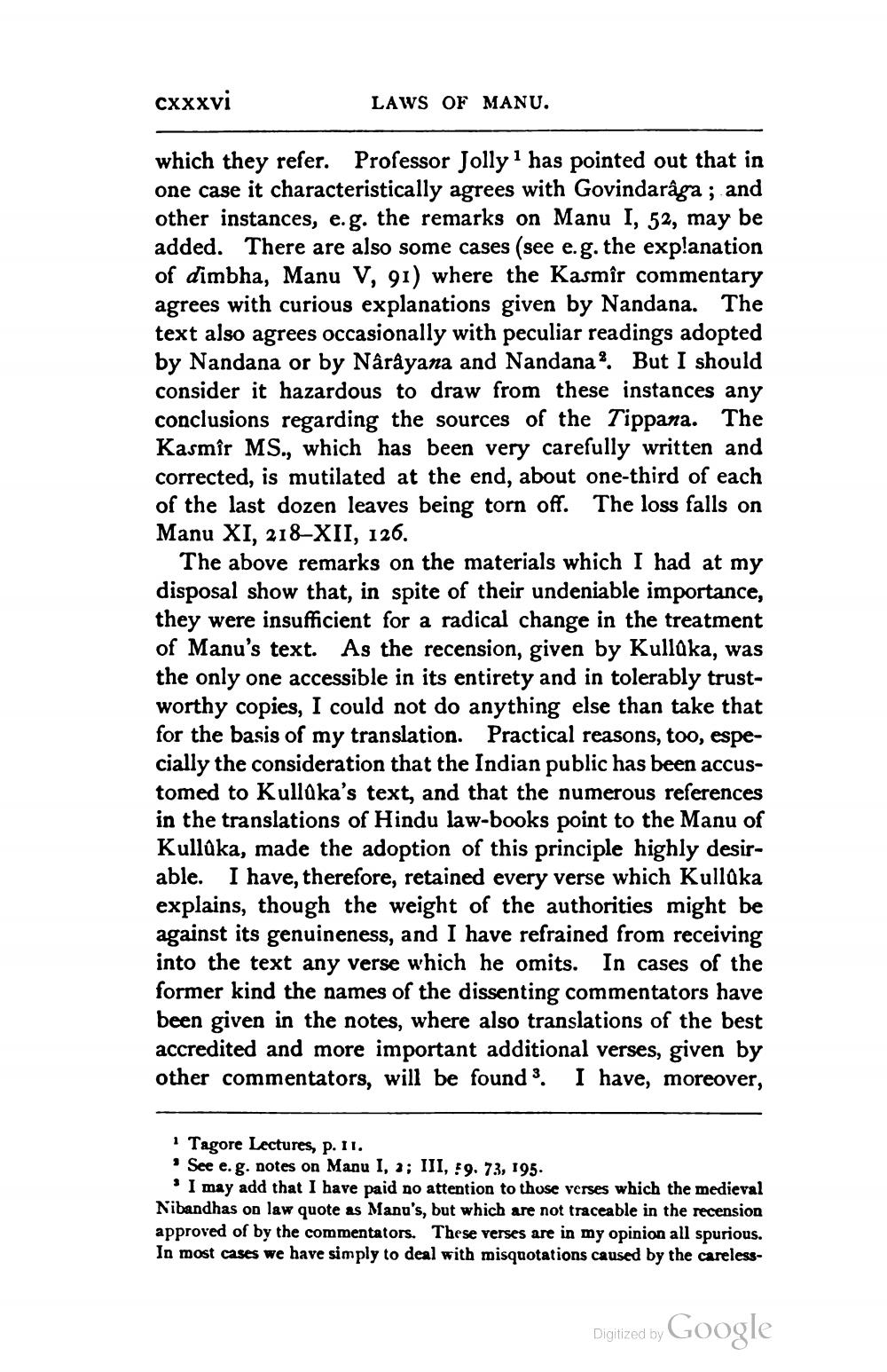________________
cxxxvi
LAWS OF MANU.
which they refer. Professor Jolly1 has pointed out that in one case it characteristically agrees with Govindarâga; and other instances, e. g. the remarks on Manu I, 52, may be added. There are also some cases (see e. g. the explanation of dimbha, Manu V, 91) where the Kasmîr commentary agrees with curious explanations given by Nandana. The text also agrees occasionally with peculiar readings adopted by Nandana or by Nârâyana and Nandana. But I should consider it hazardous to draw from these instances any conclusions regarding the sources of the Tippana. The Kasmir MS., which has been very carefully written and corrected, is mutilated at the end, about one-third of each of the last dozen leaves being torn off. The loss falls on Manu XI, 218-XII, 126.
The above remarks on the materials which I had at my disposal show that, in spite of their undeniable importance, they were insufficient for a radical change in the treatment of Manu's text. As the recension, given by Kullûka, was the only one accessible in its entirety and in tolerably trustworthy copies, I could not do anything else than take that for the basis of my translation. Practical reasons, too, especially the consideration that the Indian public has been accustomed to Kullûka's text, and that the numerous references in the translations of Hindu law-books point to the Manu of Kullûka, made the adoption of this principle highly desirable. I have, therefore, retained every verse which Kulluka explains, though the weight of the authorities might be against its genuineness, and I have refrained from receiving into the text any verse which he omits. In cases of the former kind the names of the dissenting commentators have been given in the notes, where also translations of the best accredited and more important additional verses, given by other commentators, will be found 3. I have, moreover,
1 Tagore Lectures, p. 11.
See e. g. notes on Manu I, 2; III, 9. 73, 195.
'I may add that I have paid no attention to those verses which the medieval Nibandhas on law quote as Manu's, but which are not traceable in the recension approved of by the commentators. These verses are in my opinion all spurious. In most cases we have simply to deal with misquotations caused by the careless
Digitized by
Google




